West Awakes
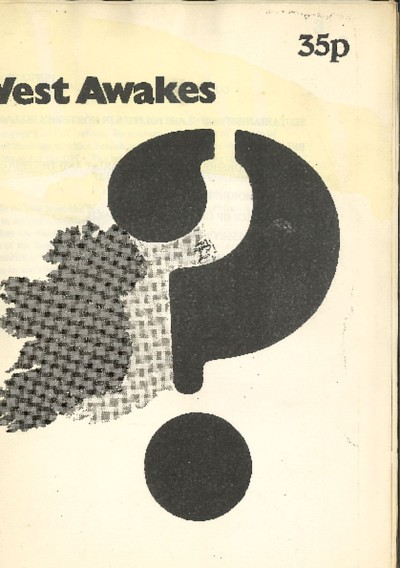
| Date: | 1982 c. |
|---|---|
| Organisation: | Communist Party of Ireland |
Contributors:
Info | Valerie Doyle, Michael Morrissey, Seán Morrissey, Brian Roe |
| Type: | Pamphlet |
| View: | View Document |
| Errata: |
|
| Discuss: | Comments on this document |
| Subjects: |
Please note: The Irish Left Archive is provided as a non-commercial historical resource, open to all, and has reproduced this document as an accessible digital reference. Copyright remains with its original authors. If used on other sites, we would appreciate a link back and reference to The Irish Left Archive, in addition to the original creators. For re-publication, commercial, or other uses, please contact the original owners. If documents provided to The Irish Left Archive have been created for or added to other online archives, please inform us so sources can be credited.
Commentary From The Cedar Lounge Revolution
23rd May 2022
A very special word of thanks to the person who donated this (and a range of other documents) to the Archive. This was issued by the West Belfast branch of the Communist Party in the 1980s.
The Introduction notes that:
This short booklet has been produced by the West Belfast Branch of the Communist Party of Ireland. Its content is the result of a series of theoretical seminars in which branch members read papers on important political issues for the CPI. The intention in reproducing the papers is to provoke debate on topics which have been hotly discussed within the branch.
It should be said from the beginning that they do not represent an attempt to set out a political line. Rather they are discursive critical pieces reflecting the wide ranging concerns of the branch. While they are diverse, they focus nevertheless on the politics of the present crisis in Ireland and on problems in the transition to socialism.
We hope they stimulate and provoke a multiplicity of responses within the Party.
The papers contained within are on “SECTARIANISM AND CLASS POLITICS IN NORTHERN IRELAND”, “THE DICTATORSHIP OF THE PROLETARIAT AND THE PROGRAMME OF THE COMMUNIST PARTY OF IRELAND”, “THE POLITICS OF ULSTER INDEPENDENCE” and “MARXISM AND NATIONALISM IN IRELAND”.
As the introduction to the first paper on Sectarianism notes:
In Ireland, religion is an inescapable factor in the political and social arena. Unlike many developed capitalist countries a significant majority of the Irish people appear to be practising believers. In this paper we are not concerned with religious beliefs as philosophical systems but the relationship between religion and the national question, and in particular how sectarianism came to be used with much effect as a divisive mechanism.
It concludes:
Firstly the link up between Catholicism and nationalism is a product of a long period of identification, being reinforced every day in the Catholic ghettoes of the North. Secondly the identification of Protestantism with pro – imperialism, with ascendancy, is, not quite as complete. There is still a tradition of Protestant liberalism , building on those liberating aspects of its theology that have largely been suppressed in general.
The article on the Dictatorship of the Proletariat argues that:
the formulation in the document of the 17th. Congress suggests simultaneously a transitional stage from capitalism to socialism and a dictatorship of the proletariat. The only conclusion is that we make precisely the same error as the PCF and influenced by utopian notions about the nature of socialism we displace it , posing some ill-defined transition between the socialist revolution and socialism itself.
In the paper on Ulster Independence this point is noted:
we need to treat the proposal for an independent Ulster seriously, It is not my view that it merely represents a new form of Unionist retrenchment – an attempt to even more furiously repress the Catholics. This overly simple mechanical view is postulated on the view that Unionism never changes. The last ten years has generated serious crises within the Unionist bloc and tactically the position should be to engage with those forces that are the product of the crisis.
The last paper is introduced as follows:
It is the object of this article to give a short critical account of Marxist writings on nationalism and the national question, paying particular attention to how the Irish national question was treated by Marx, Engels and Lenin.
Marx , Engels and Lenin had no single fixed position on the national question in Ireland, indeed their views on the subject changed many times, in accordance with the changing political climate. For example , Marx initially believed that Ireland’s problems (the main one for him being the land question), could be solved within the Union , then with the emergence of agrarian unrest and land agitation, he moved to an advocacy of Irish independence, though this latter position was dictated more by his analysis of class forces in Britain , than by an analysis of the composition of the Irish anti – landlord movements.
More from Communist Party of Ireland
Communist Party of Ireland in the archive
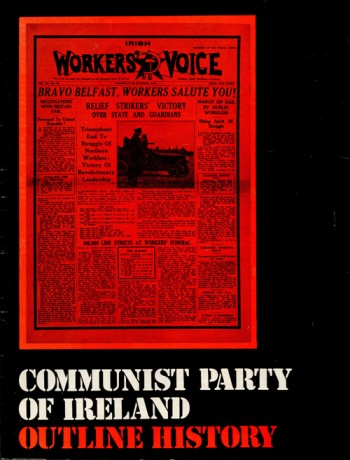
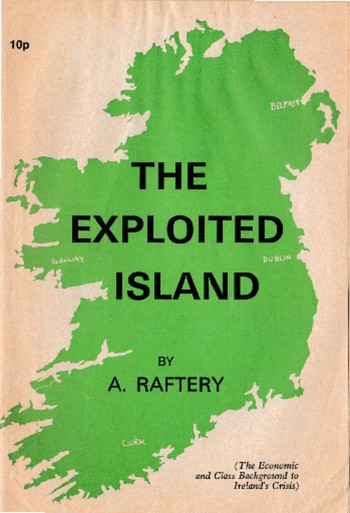
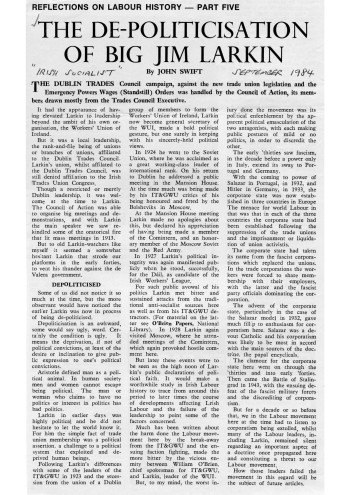
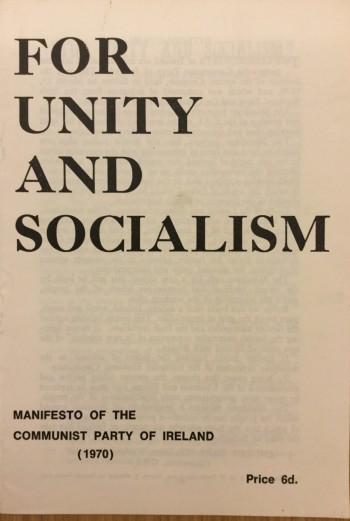
Comments
No Comments yet.
Add a Comment
Comments can be formatted in Markdown format . Use the toolbar to apply the correct syntax to your comment. The basic formats are:
**Bold text**
Bold text
_Italic text_
Italic text
[A link](http://www.example.com)
A link
You can join this discussion on The Cedar Lounge Revolution
By: jc Mon, 23 May 2022 13:47:23
It’s interesting that the CPI had a specifically West Belfast branch. Does that mean that they had a branch structure in Belfast that broke down largely along notionally sectarian lines? If so, I wonder whether that gave rise to different views on the national question predominating in different branches.
Reply on the CLR
By: Eddie Glackin Wed, 25 May 2022 16:54:12
In reply to jc.
Note that West Branch covered Falls and Shankill. As with Party branches in Dublin, Belfast branches were geographically based.
Reply on the CLR
By: banjoagbeanjoe Wed, 25 May 2022 17:21:45
In reply to Eddie Glackin.
I know the Party line will be that it did/does but I wonder did it have members from both the Falls and Shankill?
Reply on the CLR